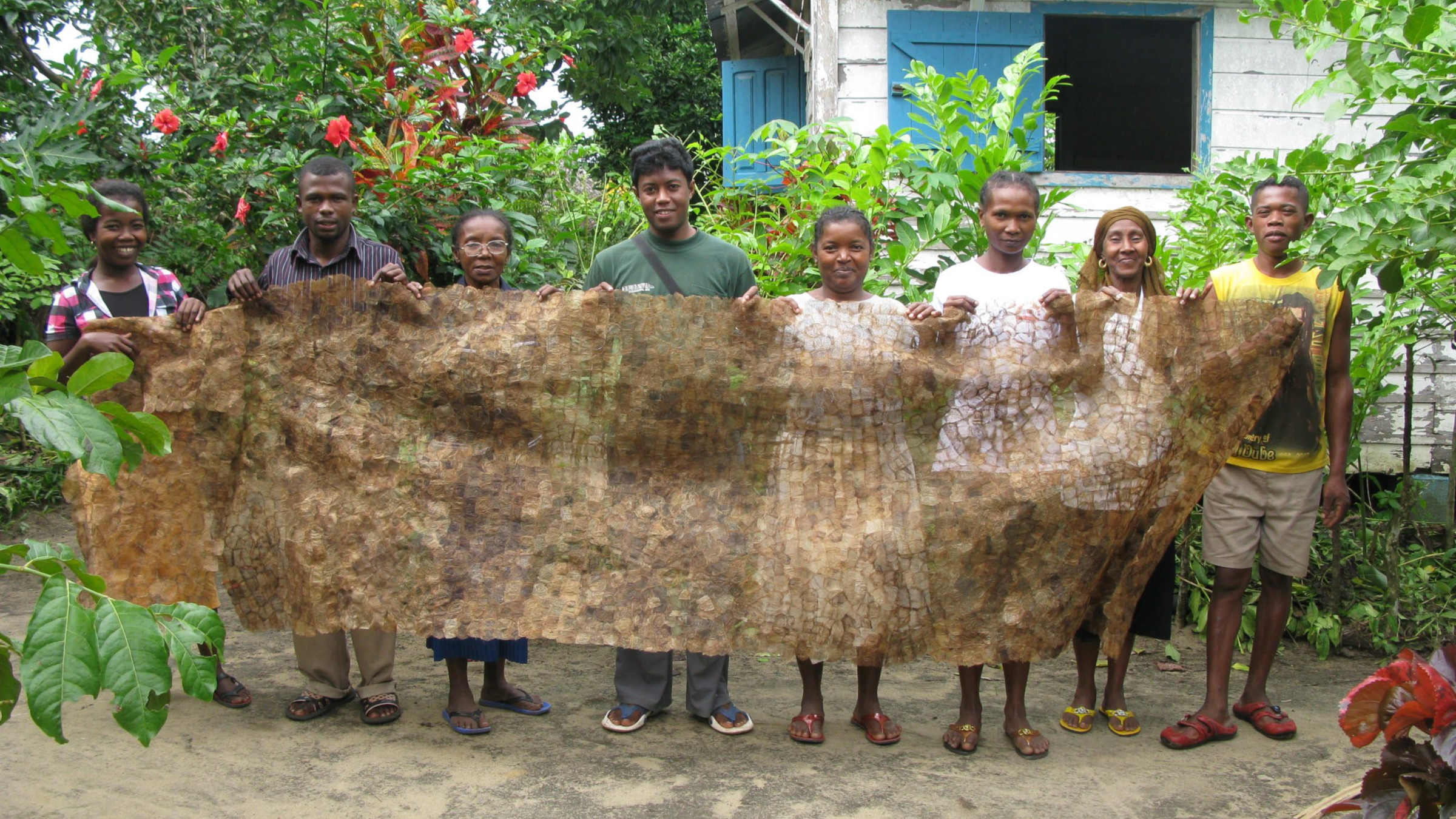SEPALI - Community-based Silk Producers Association
Fighting poverty and environmental degradation by producing and marketing high-quality textiles

SEPALI is a local spin-off of an international non-governmental organization that provides technical and financial assistance to farmers and community-based enterprise groups in Madagascar. By promoting the production and processing of wild silk from moths raised on indigenous trees, SEPALI conserves local biodiversity and secures farmers’ livelihoods. SEPALI teaches farmers how to intercrop the host plant for wild silk moths on their farms, trains them how to rear the larvae and teaches the community how to process the silk and produce unique, non-spun textiles. SEPALI then sells these textiles in the EU and US to generate foreign exchange. This creates jobs along the value chain and at the same time rehabilitates damaged areas in the border forests of the Makira Protected Area through the planting of host plants for the silk moths.
Eco-Inclusive Impacts
SEPALI provides technical and financial assistance to farmers and community-based enterprise groups in Madagascar. Their efforts conserve local biodiversity and secure farmers’ livelihoods.
- Helping women access affordable loans and financial advice.
- Enabling women who do not own farms to set up businesses and create group savings funds.
- Diverting farmers away from the Makira Protected Area for farming.
- Reducing land degradation and protecting local biodiversity.
- Reducing GHGs by planting intercropped food plants and native trees.
- Increasing farmers income up to 200% by planting trees, harvesting silk and producing textiles.
- Helping disadvantaged groups such as landless women earn money by producing larval rearing nets and spinning baskets.
Partners
“SEPALI – Community-based Silk Producers Association” is a local spin-off of an international non-government organisation which provides technical and financial assistance to farmers and community-based enterprise groups introducing wild silk production and processing from silk moths raised on indigenous trees which can be intercropped with existing agricultural produce.
SEPALI initiates and facilitates the set-up of community enterprise groups, nursery development and management, training in silk moth rearing and silk processing.
Conservation through Poverty Alleviation International (CPALI) serves as project advisor and provides funding, marketing and technical support
Material ConneXion assists in the marketing process.
Source4style introduces SEPALI’s non-spun textiles to designers.
Ghent University develops new applications forSEPALI’s silk.
